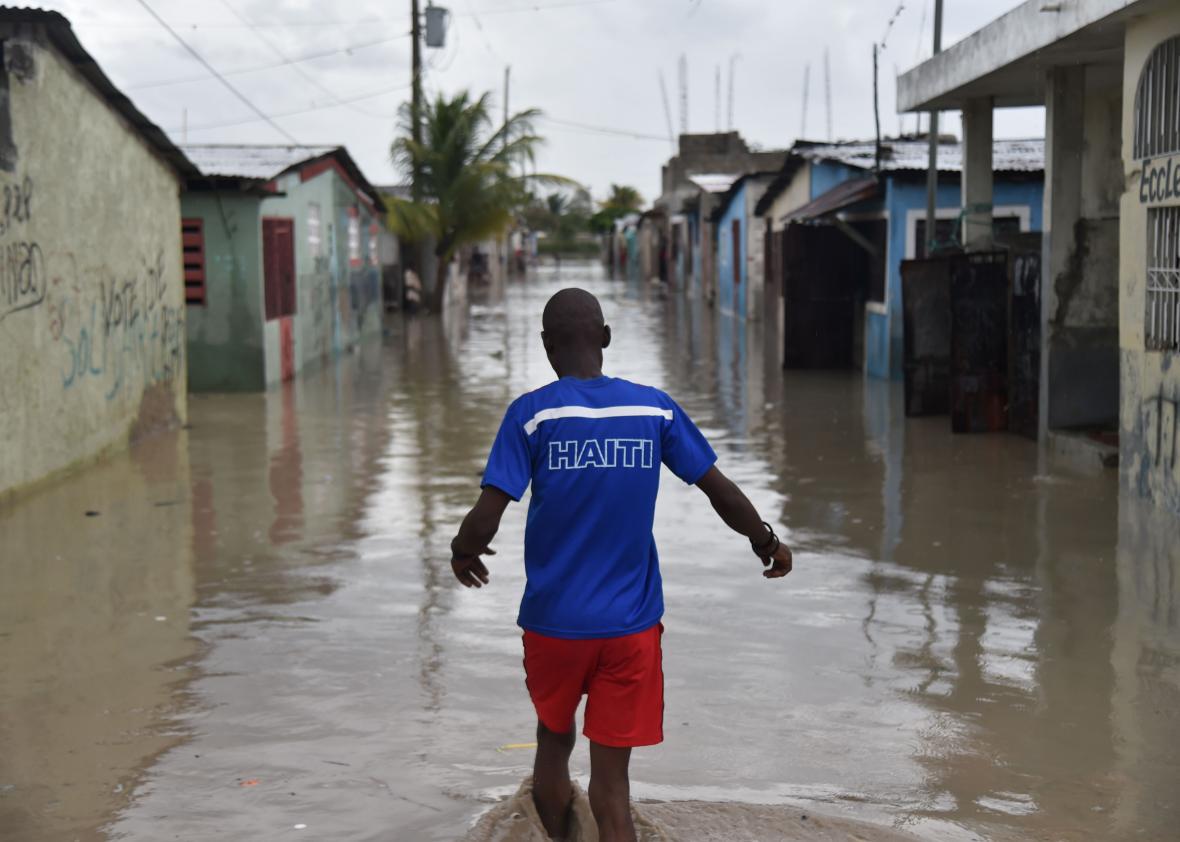Hurricane Matthew, which has now moved past Cuba as it rumbles its way toward the southeastern United States, has left Haiti with what the U.N. is calling the country’s “largest humanitarian event” since the devastating earthquake of 2010. Eleven people have been confirmed dead, a number that is certain to rise. (Update, Oct. 6, 2016: The death toll has skyrocketed to nearly 300 people.) Thousands have been displaced in a country where, six years after the quake, about 45,000 people still live in tents and makeshift shelters.
Haiti was hit with winds of 145 miles per hour, and rainfall totals that were predicted to hit 15–25 inches, turning urban areas into muddy rivers:
A relief effort is underway, but the storm knocked out a bridge between the capital, Port-au-Prince, and southern Haiti, which will make many devastated areas difficult to reach.
Bad as the storm itself was, the worst is likely yet to come. Haiti is still struggling with a cholera epidemic that was introduced to the country by U.N. peacekeepers in 2010 and infects thousands of people per year. Cholera outbreaks are more common during the rainy season and floods, when people are more likely to come into contact with contaminated sewage. The nongovernmental organization Operation Blessing has predicted a “tsunami of cholera cases unseen since post-earthquake days” after this storm.
It can’t help that the country’s political system is currently in limbo: Last year’s presidential election was thrown out after fraud allegations, and a caretaker president’s term expired in June, but he stayed in office. A new election is scheduled for Sunday.
From the introduction of cholera to a Red Cross effort that spent half a billion dollars to build six homes to the economic development policies championed by Bill and Hillary Clinton (detailed in this piece Jonathan Katz recently wrote for Slate), Haiti tends to be the graveyard of the international community’s good intentions. With the country once again in dire need of help, we’ll see if things work out better this time around. Haitians, I’m sure, are skeptical that either their own leaders, or the international community, can get this situation under control.
